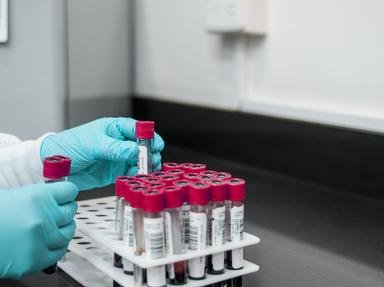Quiz Answer Key and Fun Facts
1. Are ethers and esters the same thing?
2. What is the name given to the ether with the chemical formula CH3CH2-O-CH2CH3?
3. Can ether molecules form hydrogen bonding among themselves?
4. Which of the following properties makes ether a more preferable solvent than alcohol?
5. Can ethers dissolve both polar and non-polar compounds?
6. The Williamson ether synthesis is one of several ways to synthesize ethers. What type of mechanism is involved in this synthesis?
7. An epoxide is a cyclic ether with 3 atoms on its ring (2 carbons and 1 oxygen). What is the alternative name for epoxides?
8. We can react alkene with acid to produce epoxides. Which of the following acids is suitable for this purpose?
9. Epoxides can react under both acidic and basic conditions.
10. Between a straight-chain ether and a cyclic ether (such as epoxide), which one is more reactive?
Source: Author
Matthew_07
This quiz was reviewed by FunTrivia editor
crisw before going online.
Any errors found in FunTrivia content are routinely corrected through our feedback system.
